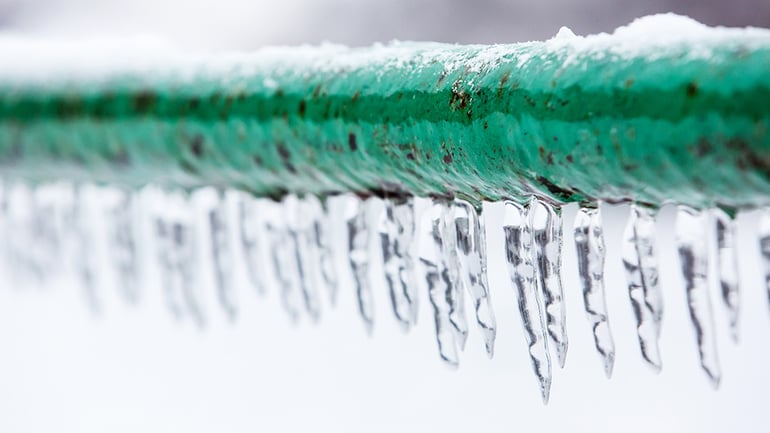
It’s no secret that winter weather on the East Coast gets ugly. Subzero temperatures, snowstorms, and ice storms create a lot of residential plumbing problems and damage. However, a few plumbing maintenance steps can help avoid disaster in your home.
Here’s how to protect pipes from freezing in your home, according to Warner Service in Frederick, Maryland:
Use The Dripping Or Running Faucet Method
When the weather reaches below-freezing temperatures in Maryland, keep one or two faucets running slowly at all times. Even at a tiny trickle, water moving through kitchen and bathroom pipes keeps it from settling in one place and freezing.
Open Cabinet Doors In The Bathroom and Kitchen
The bathroom and kitchen are common areas for winter plumbing problems. During cold weather, open cabinet doors. This allows warm air to circulate around residential plumbing and keep it from freezing.
If you do take this step, remove any harmful chemicals or other items from under the sink. Store them out of reach of kids and pets while the doors remain open.
Keep The Garage Door Closed
Keep the garage door closed as often as possible. Many homes use space in the garage to house the hot water heater or exterior pipes. It’s important to keep this exposed space as warm as possible to prevent freezing pipes and other winter plumbing problems.
Keep The Thermostat Temperature Consistent
Keeping the thermostat temperature consistent during the extreme cold is important. It’s the easiest way to ensure your home stays warm while you’re asleep or away. It also keeps unexpected freezing from happening in the residential plumbing.
While this creates a slightly higher energy bill, but it’s far less expensive than dealing with the added expense of a burst pipe.
Make Plans For While You’re Away
If you’re going to be away from home for an extended period of time, set the thermostat to a minimum of 55 degrees fahrenheit and turn the heater on. Turn off the water supply to your home during this extended period of time to reduce pressure.
It’s also a good idea to have a trusted friend or relative stop by periodically to check for any plumbing issues, especially if your absence is for a few days or weeks.
Remember Outdoor Items
As winter approaches, don’t forget outdoor items. Drain water from the swimming pool, and unhook any garden hoses from outside faucets. If you leave the outdoor hose connected, water isn’t able to drain out of the hose bib and will likely freeze and damage faucets.
Also, check any irrigation lines or other outdoor piping. Add insulated sleeves as necessary, and call a plumbing professional for assistance.
Install Extra Insulation
Another option is to add extra insulation in problem areas, including basements, crawl spaces, and attics. Look for areas where cold air might leak in and create freezing issues for residential plumbing.
The added layer of protection is less expensive than dealing with a frozen or burst pipe. In some cases, small insulated sleeves available at a local home improvement store are a great choice for added protection with minimal effort.
If you aren't sure where to start, a licensed plumber at Warner Service can point you in the right direction.
If you experience a plumbing problem due to frozen pipes this winter, call a professional. Contact us today to schedule an appointment. You can also download our Boiler Maintenance Checklist to keep your home warm this winter:


